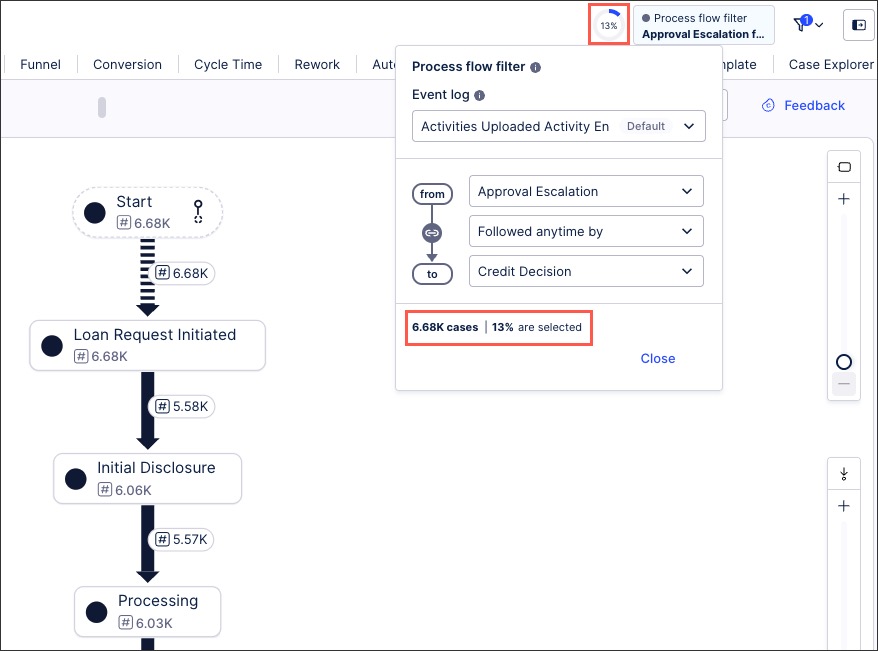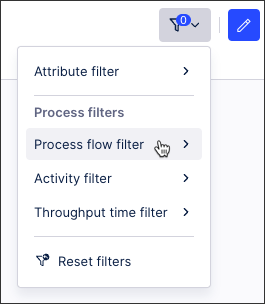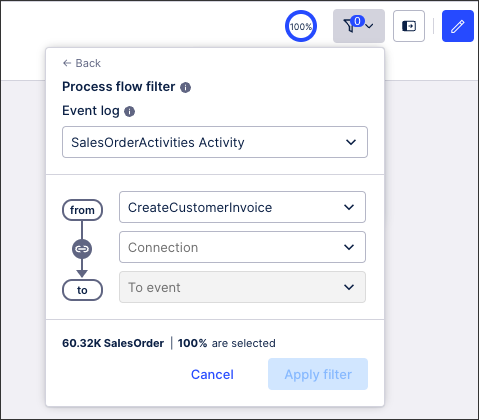Using process flow filters
Process flow filters are used to refine and focus on specific aspects of a process by filtering out unnecessary variations, noise, or unwanted data points. You can configure a process flow filter by selecting the starting and ending events / activities that you want to either include or exclude in the filter.
In this example, a process flow filter is being used to show only data where an approval is escalated, followed at any time by a credit decision being made. This filters down the objects to show only 13% of them, helping to analyse what happens to cases when an escalation is needed.
 |
Benefits of using a process flow filter
Using process flow filters can be beneficial in a number of ways, including:
Enhanced visibility: By removing unnecessary deviations, you can focus on the most important parts of your process.
Improved analysis: You can reduce complexity by filtering out uncommon or irrelevant paths. Filtering out that noise gives you cleaner, more reliable data to work with.
Better anomaly detection: Identify critical process bottlenecks and inefficiencies by isolating key patterns in your process.
Customizable per use-case: Your filters can be set for different process stages (e.g., time from order placement to shipment). You can also analyze short, medium, and long term cases separately.
Configuring process flow filters
With process filters enabled, App users can apply process flow filters by clicking Filters - Process flow:

You can then configure the following options:
Event log: Event logs describe the sequence of activities happening for your cases e.g. all activities related to your purchase orders.
From / to: Select the events used to start and end the filter, taken from your event logs in your Data Model.
Connection type: The following connection types can be selected:
Directly followed by
Followed anytime by
Not directly followed by
Never followed by
 |